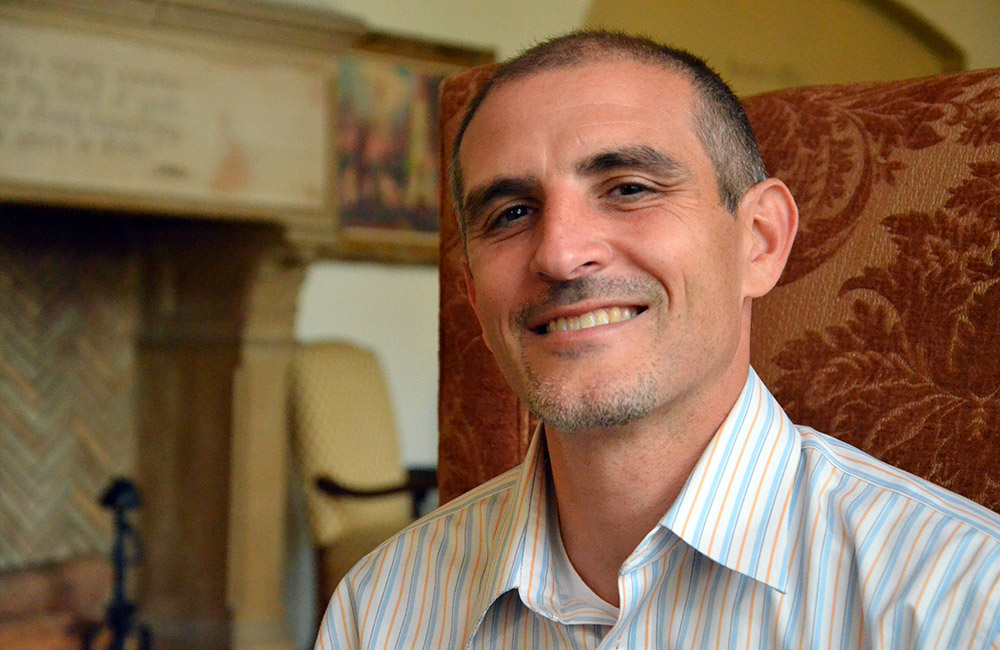 Associate Professor of History Natale “Nat” Zappia has been named Whittier College’s new Nadine Austin Wood Chair in American History. In this role, Zappia looks forward to further develop programming at the Sustainable Urban Farm (SUrF) garden, bringing speakers on environmental history to campus, and implementing service-learning paired courses that connect with local museums and historic sites.
Associate Professor of History Natale “Nat” Zappia has been named Whittier College’s new Nadine Austin Wood Chair in American History. In this role, Zappia looks forward to further develop programming at the Sustainable Urban Farm (SUrF) garden, bringing speakers on environmental history to campus, and implementing service-learning paired courses that connect with local museums and historic sites.
Specializing in colonial and early national North America, Zappia focuses on the early modern borderlands of the Atlantic World, Pacific Rim, and Native America. His research and teaching explores the intersection of continental trading networks, food pathways, and ecological transformations in colonial North America. With an impressive list of journal publications and external research awards, Zappia has also authored two books.
In this new six-year role, Zappia will also finish his GIS training and work on a new book titled Food Frontiers: Borderland Ecologies in Early North America. In his book, he will study environmental trends that cut across time periods.
“I’m fascinated with bridging colonial periods, colonial food systems, and environmental issues with California and the West of today,” said Zappia. “For example, how did people consume water in 16th century California compared with today, and what does that say about history? I’m always interested in looking back and seeing the cycle.”
A very popular professor, Zappia also advises students in environmental studies, the Whittier Scholars program, and the Mellon Mays Undergraduate Fellowship program.
In 2004, trustee emeritus Donald E. “Bill” Wood LHD ’98 endowed The Nadine Austin Wood Chair in American History in honor of his late wife and to support the scholarship of excellent professors in that discipline. Zappia succeeds Professor Laura McEnaney who was the first Whittier faculty member to fill the position.
Zappia earned his Ph.D. and M.A. in history from the University of California, Santa Cruz, as well as an M.A. from Claremont Graduate University and a B.S. from Cornell.